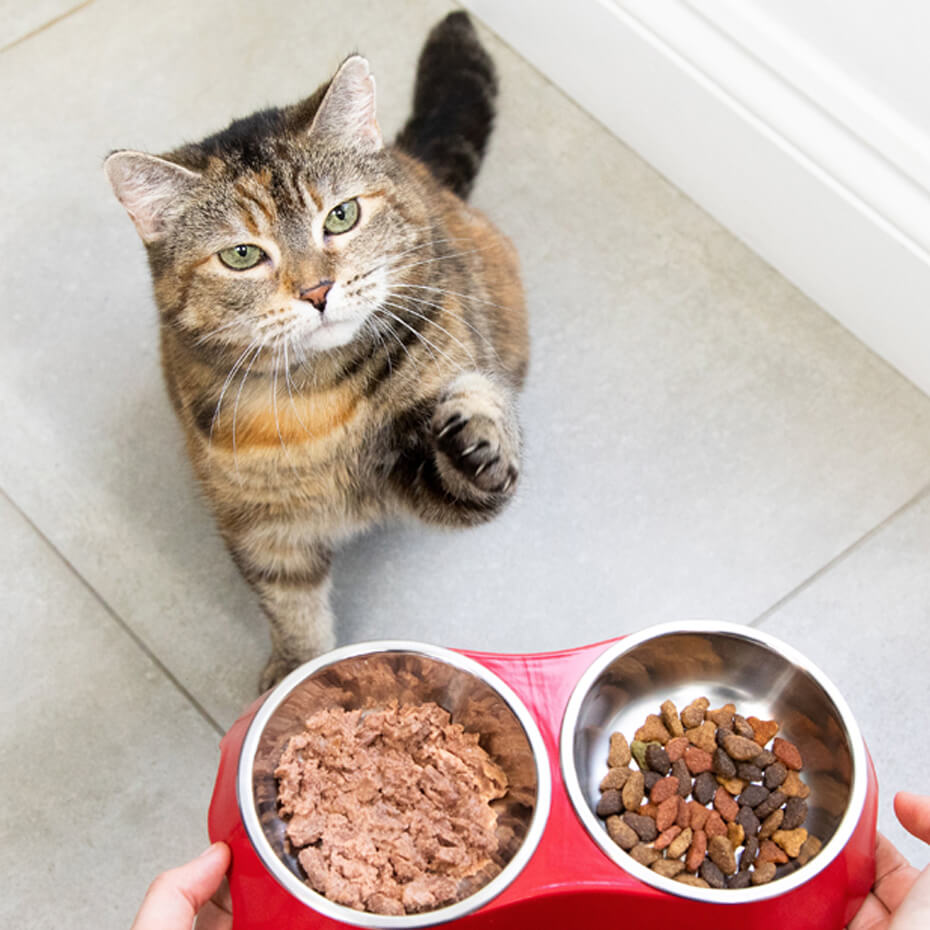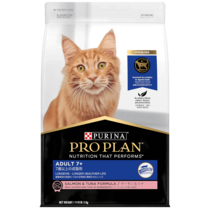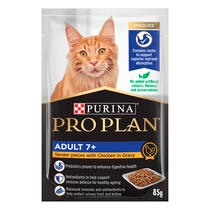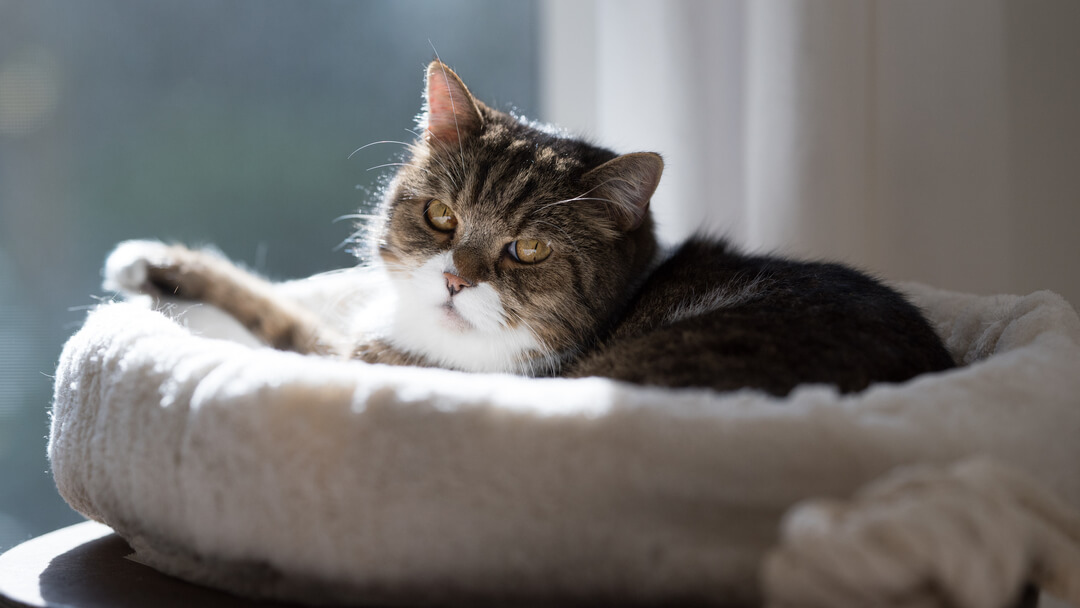
Is your cat lethargic with a reduced appetite? There are many possible causes for these symptoms, but pancreatitis in cats is one to be aware of. Find out more about this condition including its diagnosis and management.
The pancreas is one of the organs in the abdomen. It has roles in digestion and also produces insulin to help control blood sugar levels after eating. Pancreatitis in cats refers to inflammation of this organ, and is a more common disease than previously thought. This guide will help you to notice possible symptoms of pancreatitis and find out more about the condition.
What is pancreatitis in cats?
The pancreas makes digestive enzymes which help to break down food. In a healthy pancreas, these enzymes are not activated until they have reached the small intestine. In a cat with pancreatitis the enzymes become activated while they are still in the pancreas, leading to self-digestion and inflammation of the organ.
What are the symptoms of pancreatitis in cats?
The symptoms of pancreatitis in cats can be more subtle than those of pancreatitis in dogs, which is a more commonly diagnosed condition. Symptoms generally include non-specific signs such as nausea, vomiting, fever, dehydration, abdominal pain, loss of appetite, weight loss or lethargy.
What causes pancreatitis in cats?
The initial trigger for feline pancreatitis is not fully known and is likely to vary between individuals. There is evidence that a range of underlying causes could be responsible such as infectious disease, other inflammatory illnesses, or trauma.
How is pancreatitis diagnosed?
The symptoms of cat pancreatitis are non-specific and can be associated with many other underlying diseases. If pancreatitis is suspected, the vet is likely to recommend blood tests and ultrasound examinations.
However, feline pancreatitis can be a diagnostic challenge and often involves ruling out other possibilities as part of the process.
Cases may present as acute, where the cat has sudden onset of inflammation and associated symptoms. Other cases are chronic and less severe, but continue long-term. Acute bouts of pancreatitis can lead to development of chronic disease.
What is the treatment for pancreatitis in cats?
The disease processes involved in feline pancreatitis need further study to be well understood. This means that current treatment options focus on effective management of the condition rather than a cure.
Depending on how unwell your cat is, they may need to be admitted to veterinary hospital for intravenous fluids to help correct dehydration and make sure that the pancreas is receiving good blood flow. They may also need pain medication, anti-sickness treatment, appetite stimulants and feeding support.
Depending on suspected causes of the condition other recommended treatments can also include antibiotics, antioxidants or anti-inflammatory steroids. Supplementation with cobalamin is sometimes recommended.
This is because cats with pancreatitis often have a degree of intestinal inflammation, which can affect vitamin absorption.
In severe cases of pancreatitis, insulin-dependent diabetes can develop. This may be temporary or can be a more permanent affect. In these cases, cats may require insulin therapy and monitoring.
What should I feed a cat with pancreatitis?
The recommended diet for cats with pancreatitis varies between individuals, particularly if your cat is diagnosed with other health problems. Depending on your cat’s usual diet, the vet may recommend some changes such as feeding smaller, more frequent meals of a low-fat diet. Speak to your vet about choosing a high-quality diet for your cat.
If your cat is not eating, your vet may recommend admitting them to the clinic to be fed through a feeding tube for a while. This will make sure they receive the nutrients and energy they need and helps to prevent development of complications from anorexia such as hepatic lipidosis (fatty liver).
How soon will a cat with pancreatitis recover?
The recovery period depends on the severity of the condition and they underlying cause. Most mild cases resolve within a few days of seeking veterinary treatment. More severe cases will take longer and often require a hospital stay, sometimes for a week or more.
The symptoms associated with pancreatitis in cats are not specific to this condition and can also point to other health problems. There are various reasons why your cat may show a lack of interest in their dinner. Check out other factors that can lead to a fussy-eating cat.
















